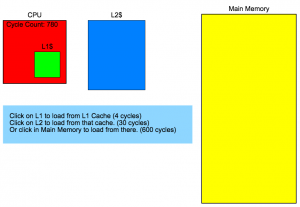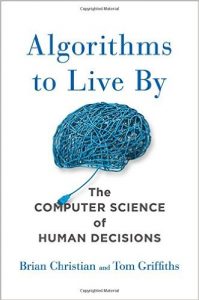Fri, 26 August 2016
Storing smaller subsets of data in a faster, closer memory can make astronomical differences in performance. This episode we're talking about the caching tools and techniques that application frameworks provide. The original version of the shownotes can be found at:
Direct download: coding-blocks-episode-046.mp3
Category:Software Development -- posted at: 10:42pm EDT |
Fri, 12 August 2016

In this episode we give a general overview of caching, where it's used, why it's used, and what the differences in hardware implementations mean in terms we can understand. This will be foundational to understanding caching at a software level in an upcoming episode. There's also something about the number 37 that may be the most important number to remember...ever... Podcast NewsYou can see all the show notes in their original form by visiting: Thanks for your patience, we had a couple of rough audio situations - and we appreciate you sticking with us! iTunes Reviews Stitcher Reviews
Clean Code episodes coming soon + book giveaway - Stay Tuned! Caching: Turtles all the way downTurtles all the way down???
Why don’t we cache everything?
Caching at the hardware levelLatency Numbers Every Programmer Should Know Relative Memory Access Interactive Demo Caching is a strategy that computers use going all the way down to the processor L1
L2
Main Memory
Network
SSD
Spinning Disk
Internet
In more relatable terms.
Think about how those numbers cache
SummaryHope we gave you a good idea of the importance and scale of caching in computing at the hardware level Things we didn’t talk about coming in a future episode:
Resources we LikeLatency Numbers Every Programmer Should Know How L1 and L2 caching work Relative Memory Access Interactive Demo MiscellaneousMichael’s Favorite Meetup Ever Hacking Interviews with: Tip of the WeekJoe: Algorithms to Live By Michael: Use Sublime to replace \n with an actual new line by turning on RegEx search and replace. Or in Michael’s case, replace Allen: Collaborative Markdown Editor - What?!
|
Tue, 2 August 2016
This week on Coding Blocks, Allen says www as best he can, Joe eats the microphone, and Michael does something crazy as we discuss Stack Overflow's Salary Calculator and our experiences in landing the job - what to do and what not to do. |
Coding Blocks

Categories
application securitysource control
Software Development
general
Database
testing
programming
Javascript
tools
Archives
AprilMarch
February
January
December
November
October
September
August
July
June
May
April
March
February
January
December
November
October
September
August
July
June
May
April
March
February
January
December
November
October
September
August
July
June
May
April
March
February
January
December
November
October
September
August
July
June
May
April
March
February
January
December
November
October
September
August
July
June
May
April
March
February
January
December
November
October
September
August
July
June
May
April
March
February
January
December
November
October
September
August
July
June
May
April
March
February
January
December
November
October
September
August
July
June
April
March
February
January
December
November
October
September
August
July
June
May
April
March
February
January
December
November
October
September
August
July
June
May
April
March
January
December
November
October
September
| S | M | T | W | T | F | S |
|---|---|---|---|---|---|---|
| 1 | 2 | 3 | 4 | 5 | 6 | |
| 7 | 8 | 9 | 10 | 11 | 12 | 13 |
| 14 | 15 | 16 | 17 | 18 | 19 | 20 |
| 21 | 22 | 23 | 24 | 25 | 26 | 27 |
| 28 | 29 | 30 | 31 | |||
Syndication





